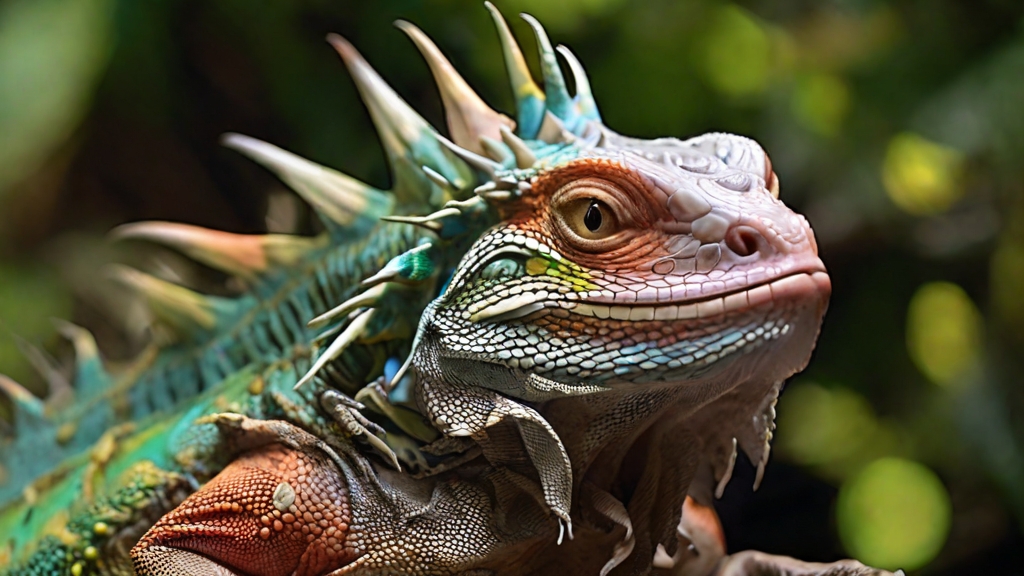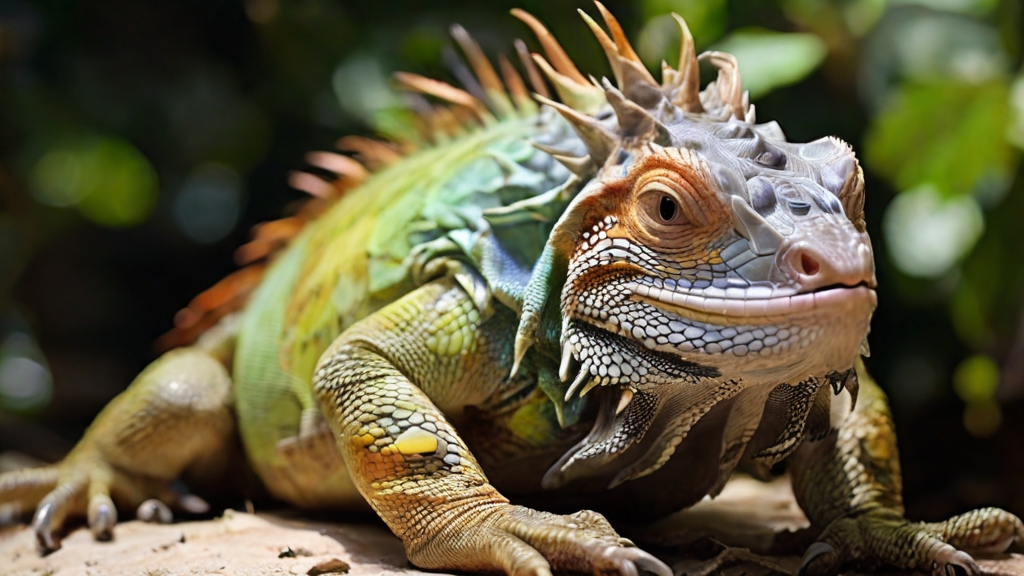Understanding the weight of an iguana is crucial for their overall health and well-being. By monitoring their weight, you can identify any potential health issues and ensure they are receiving proper care.
In this article, we will explore what an iguana is, why their weight is a key indicator of health, factors affecting their weight, how to measure their weight, average weight ranges for different species, fluctuations in weight, signs of a healthy or unhealthy weight, maintaining optimal weight, common weight-related health issues, and tips for managing iguana weight.
What is an Iguana?
Iguanas are large reptiles commonly found in tropical regions. They are known for their distinctive appearance, with long tails, sharp claws, and a row of spines running down their backs. There are several species of iguanas, including the green iguana, which is one of the most popular as a pet. These reptiles are herbivores, primarily feeding on leaves, fruits, and flowers. They require specific care and attention to thrive in captivity.
Iguana Weight: A Key Indicator of Health
Monitoring an iguana’s weight is crucial for assessing their overall health. Weight loss or gain can indicate underlying health issues such as malnutrition, metabolic disorders, or dehydration. According to experts at the American Veterinary Medical Association (AVMA), “maintaining an appropriate weight is essential for iguanas to thrive and avoid potential health problems.” Keeping a close eye on their weight allows you to intervene promptly if any concerns arise.
Factors Affecting Iguana Weight
Several factors can influence an iguana’s weight. These include diet, age, activity level, and reproductive status. A balanced diet consisting of leafy greens, vegetables, and occasional fruits is essential for maintaining a healthy weight. Younger iguanas may experience rapid weight gain as they grow, while older iguanas may experience weight loss due to age-related factors. Additionally, reproductive females may gain weight during egg production. It’s essential to consider these factors when monitoring an iguana’s weight.
How to Measure an Iguana’s Weight
Measuring an iguana’s weight can be done using a gram scale. Place a clean cloth or towel on the scale’s surface and gently place your iguana on top. Make sure to note the weight in grams. It’s crucial to handle them with care and ensure their safety throughout the process. Repeat this process regularly to track any weight changes over time.
Average Weight Range for Different Iguana Species
The weight of an iguana can vary depending on its species. Below are the average weight ranges for some common iguana species:
- Green Iguana: Adult males typically weigh between 4-6 kilograms (8.8-13.2 pounds), while adult females weigh around 2-4 kilograms (4.4-8.8 pounds).
- Red Iguana: Adult males usually weigh between 4-6 kilograms (8.8-13.2 pounds), while adult females weigh around 2-4 kilograms (4.4-8.8 pounds).
- Blue Iguana: Adult males can weigh up to 20 kilograms (44 pounds), while adult females generally weigh between 1.5-5 kilograms (3.3-11 pounds).
Remember, these ranges are approximate and can vary based on individual health and genetics.
Understanding Weight Fluctuations in Iguanas
It is essential to understand that weight fluctuations in iguanas can occur naturally. Factors such as water intake, digestion, and reproductive cycles can cause temporary weight changes. However, significant and consistent weight loss or gain should be monitored closely as it may point to an underlying health issue. Regular monitoring and tracking of weight fluctuations will help identify any concerning patterns.
Healthy vs. Unhealthy Weight: Signs to Look For
Determining whether an iguana is at a healthy weight involves observing their overall appearance and behavior. Signs of a healthy weight include a well-rounded body shape, visible muscle tone, and a clear alertness. Conversely, signs of an unhealthy weight may include prominent bones, excessive fat deposits, listlessness, and reduced appetite. If you notice any of these signs, it is essential to consult a veterinarian to address the issue and develop a suitable care plan.
Maintaining an Optimal Weight for Your Iguana
To maintain an optimal weight for your iguana, it is crucial to provide a balanced diet, appropriate habitat, and regular exercise. Ensure their diet primarily consists of leafy greens, vegetables, and occasional fruits, avoiding high-fat or processed foods. Provide a spacious and enriching enclosure that allows for physical activity. Regular exercise, such as supervised time outside the enclosure, climbing, and exploring, can help your iguana maintain a healthy weight.
Common Weight-related Health Issues in Iguanas
Weight-related health issues in iguanas can include metabolic bone disease, fatty liver disease, and vitamin deficiencies. Metabolic bone disease can occur when an iguana’s diet lacks essential nutrients, leading to weakened bones. Fatty liver disease is often caused by a high-fat, imbalanced diet. Vitamin deficiencies, such as a lack of Vitamin D3 or calcium, can also impact an iguana’s health. Regular weight monitoring and a proper diet can help prevent these health issues.
Tips for Managing Iguana Weight
Here are some tips to help manage an iguana’s weight:
- Consult a veterinarian experienced in reptile care for guidance on appropriate diet and weight management.
- Provide a balanced diet consisting of leafy greens, vegetables, and occasional fruits.
- Avoid high-fat or processed foods that can contribute to weight gain.
- Ensure proper hydration by providing fresh water daily.
- Provide a spacious enclosure with opportunities for physical activity and climbing.
- Regularly monitor and track your iguana’s weight to detect any changes promptly.
Conclusion: The Vital Role of Iguana Weight Monitoring
Understanding and monitoring an iguana’s weight is vital for their overall health and well-being. By staying attentive to their weight fluctuations, you can identify potential health issues and provide appropriate care.
Remember to consult a veterinarian for professional guidance and ensure your iguana’s diet, habitat, and exercise meet their specific needs. By prioritizing their weight management, you can help your iguana lead a long and healthy life.




